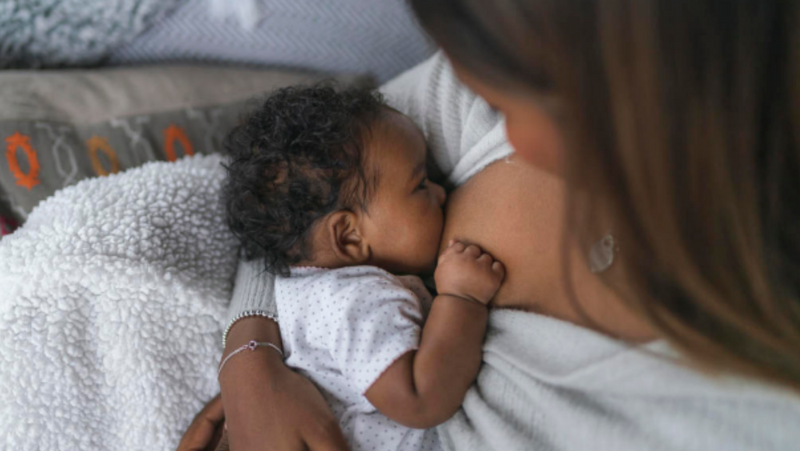Written by: Wendy, IBCLC.
The truth is, no one can fully prepare you for what it’s like to have a baby. In theory, you can know that it includes sleepless nights and constant care, but to really get it, you kind of have to live it.
Still, there are some things that most of us go into parenting having some basic knowledge of, like the fact that our babies won’t sleep through the night at first and that they will have a million diaper changes. Most of us also know that breastfeeding takes some practice and doesn’t come naturally to us all (and that’s okay!).
But there are some things about being a postpartum parent that aren’t talked about nearly enough yet are experienced by most of us. We asked moms on Instagram what postpartum topics they felt were not often discussed in the parenting community. This resource article is to help bring more information to common themes that were called out on our post. For example, did you know that you might lose some of your hair after you have a baby or that you might wake up drenched in sweat at times?
Let’s look at some of the lesser-known things we experience postpartum, what they are like, and why they happen.
1. NIGHT SWEATS
Many of us experience hot flashes and night sweats in the first few weeks after having a baby. It often seems to happen randomly. One night you’ll be fine, and the next, you’ll wake up at 2 am drenched in sweat. Not everyone goes through this—and it can be different from one pregnancy to another—but if you experience it, don’t worry. As for why this happens, you can blame postpartum hormone fluctuations. When you’re pregnant, you have high progesterone and estrogen levels, but these hormones plummet after you have a baby, causing symptoms like intense temperature fluctuations.
2. POSTPARTUM ANXIETY AND RAGE
Almost everyone has heard of postpartum depression. That’s a good thing, because it’s something that every 1 in 8 parents experience after having a baby, and knowing that it’s common (and treatable) makes it more likely that parents will reach out for the help they need. But what many of us don’t realize is that postpartum depression isn’t just about feeling sad or hopeless. It can also manifest symptoms of anxiety, intrusive thoughts, anger, and rage. The bottom line is that if you feel extreme feelings after having a baby—especially feelings that make it difficult for you to care for yourself or your baby—help is out there, and you deserve it.
3. AFTER BIRTH CONTRACTIONS
While it’s true that labor pain is no joke and among the most intense experiences you will ever have, many new parents don’t realize that after-birth pains can be very intense as well. After you give birth, your uterus starts to contract back to its pre-pregnancy size. Some of us experience mild discomfort when this happens, but others experience pain that can take our breath away. This is especially true if we are nursing, as oxytocin released during breastfeeding also helps contract our uterus back to size. Many postpartum parents report that postpartum contractions are also worse if you’ve had more than one child.
4. ABDOMINAL AND PELVIC FLOOR ISSUES
In order to accommodate our growing babies, our muscles need to stretch, our organs need to move around, and sometimes that can make temporary—or lasting—changes to our bodies. For example, about a third of postpartum parents will experience diastasis recti (separation of the abdominal muscles) after giving birth. Mild cases of diastasis recti heal on their own, but some find that this abdominal separation doesn’t go away without pelvic floor therapy or postpartum-friendly exercise. Check out out blog on diastasis recti to learn more about what it is and what to do about it. Similarly, many of us end up with prolapsed organs after birth and weakened pelvic floors. This can lead to symptoms like leaking pee and incontinence. Prolapses are also treatable with pelvic floor therapy, though sometimes surgery is necessary.
5. HAIR LOSS
If you find yourself running your finger through your hair after you have a baby and finding that your hands fill with clumps of hair, you are not alone. The reason, again, is hormones—a drop in estrogen levels, in this case. During pregnancy, you may have noticed that your hair was fuller than usual, and you lost very little hair at all. Once your estrogen levels decrease after birth, your hair enters a “shedding phase.” Luckily, this phase only lasts a few months, and by the time your child is a year old or so, your hair shedding tendencies should reach a normal level.
6. NOT FALLING IN LOVE WITH BABY RIGHT AWAY
This is one that many of us experience but don’t talk about enough. Most of us have an idealized version of new parenthood in our minds. We think that as soon as we lay eyes on our baby, we will fall instantly in love. But the truth is, falling in love with your baby can sometimes be a process, and you shouldn’t feel bad if it takes you some time to get used to your little one or even harbor mixed feelings about being a parent at first. If you feel anger or deep resentment toward your child, you should speak to your doctor or midwife, as this may be signs of a postpartum mood disorder. But if you aren’t feeling head-over-heels at first, be gentle with yourself, and give yourself time.
Every new parent has a different postpartum experience. Some of us feel great after giving birth; some of us feel like we’ve been hit by a truck. Some seem to find things like breastfeeding easy; some of us have babies who scream every time they come near the breast. The most important thing to remember is that whatever you are experiencing is okay, you are far from alone—and you shouldn’t hesitate to reach out for help or support along the way if you need it.




